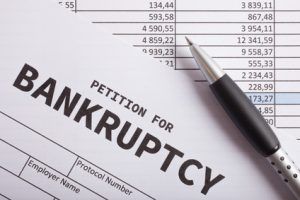
Legal issues
The reason that legal representation is imperative in bankruptcies is that it is not a simple process. In general, very rarely, an asset is exempted as per the general provisions of the Florida Bankruptcy Act. In the vast majority of cases, there are either exceptions, or other considerations involved. These might be:
1) Bankruptcy exemptions imposed by the federal government and the 10th amendment of the Constitution.
2) Property that is wholly held as tenancy is exemptible if only one spouse owes a debt.
3) Properties where a spouse or child may claim homestead exemption.
4) Properties of business partnership are exemptible.
5) Benefits, wages and pensions must be examined for the possibility of exemption.
6) Secured properties by a loan, may be exempted if the payments are current.
7) The compensations awarded to a victim of a crime are exemptible unless the victim wants to discharge the debt that has been incurred for the treatment of the injuries sustained by the crime for which they were awarded the compensation.
8) Married couples may file a different set of exemptions, unless other circumstances prevail.
9) A non-exempt property may be kept by the debtor if the trustee is paid the value of the said property. This may also occur if the cash payment for the exempted property after the liquidation of the debtor’s other assets is sufficient to cover that value.
The list of exceptions and special considerations is very long. And it becomes even longer if the special arrangements that involve:
- County officers and employees
- State officers and employees
- Firefighters
- Police officers
- Highway Patrol officers
- Teachers
are taken under consideration.
The Trustee
This is the most important entity in a bankruptcy case. It is appointed by the court to review all the paperwork in a case, including the exemptions claimed by the petitioner. The trustee has the right to challenge any element of the case and declare as non-exempt some of the assets that have been listed as such.
It is clearly obvious that the previous statement of “not a simple process” is an understatement. This is why you need the services of attorneys like Wideman and Malek to get you through the maze of the proceedings involved in a bankruptcy.

